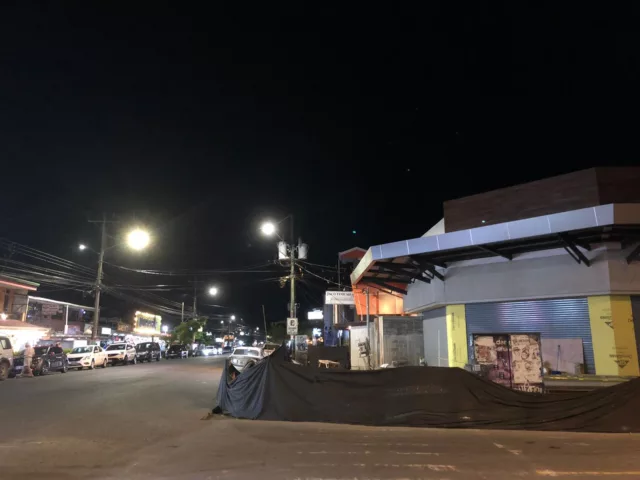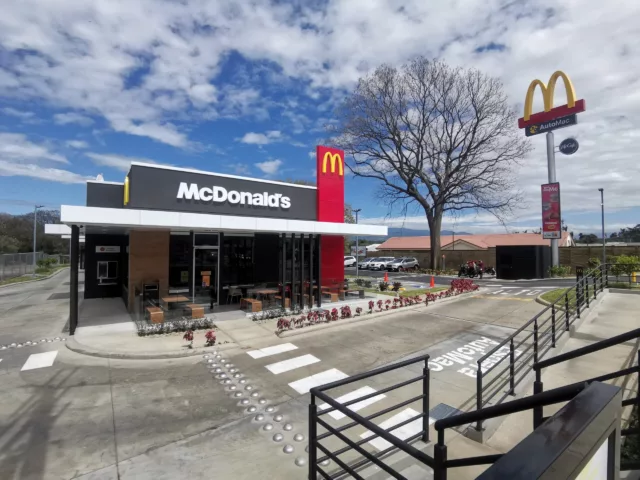Capitalism is known as an economic and social system based on private ownership of the means of production, on the importance of capital as a generator of wealth and on the allocation of resources through the market mechanism.

You may wonder why I start this article by emphasizing the meaning of capitalism and that is that through this system, franchises like KFC or Mcdonald’s have expanded in large cities around the world and have in part generated jobs for many people.
I make special mention of McDonald’s, because in Jacó beach, Costa Rica, a franchise is going to open its doors soon. It turns out that Jacó was previously free of this type of trade and this is where we ask, will Jacó lose its identity, its naturalness, its essence as a town?
All around the country
In the Central American country there are about 70 McDonald’s restaurants, distributed in 6 provinces.San José is the province with the most restaurants, followed by Heredia, Cartago, Alajuela and Guanacaste and Limón.
In November 2002, the first McDonald’s was even opened in Pérez Zeledón, that is, outside the Greater Metropolitan Area (GAM), known as the main urban agglomeration in Costa Rica.
Around the world
At the end of 2021, the establishments with the famous yellow logo, in charge of fast food, exceeded the 40,000 barrier, which means a growth of more than 6,000 in ten years. The United States, with almost 14,000, was the country with the most restaurants in the world.
McDonald’s is recognized as the largest employertraining of young people from Latin America.80% of current restaurant managers started out as regular restaurant collaborators.
Since the beginning of 2018, Costa Rica eliminated 100% of the styrofoam from its restaurants.In 2019, the plastic breakfast packaging was replaced by a certified cardboard one. In Costa Rica alone, this change meant that 45 tons of plastic were not delivered, which is equivalent to 1 million plastics per year.In 2020, McDonald’s replaced 16 million plastics per year with certified material.

Research papers on the impact of McDonald’s on people
The research work called “Homogenization and Sociability. An Anthropological Study”, carried out by the graduate in Social and Cultural Anthropology, Javier Eloy Martínez Guirao, from Spain, emphasizes precisely globalization, which prevails in the world at the beginning of the century XXI, reflected in all areas of daily life in our society, and food, as a sociocultural phenomenon that has suffered its effects. “McDonald’s restaurants, as one of the main multinationals in the food industry, have spread aspects of North American ideology in a process of acculturation, bringing with it different discourses.”
Similarly, the study talks about how the economic engine has driven large multinationals to gradually establish themselves in all corners of the planet, establishing McDonald’s restaurants as a representative symbol of them.
And it highlights the origin of McDonald’s restaurants, dating back to 1948, when the first establishment was opened in California (USA). It was in the 60s, when the company expanded throughout the US territory, creating in 1968, anecdotally, its flagship product, the “Big Mac”. The internationalization campaign began in the 70s, although it took until the following decade for its introduction in Latin America to become effective.
About Jaco Beach
Jacó is better known as the capital of the Pacific Coast. It is an area of attraction for surfers, beach lovers and those looking for a shopping, swimming and nightlife combination.
Jacó is located in the Puntarenas province, less than an hour from San José, making it the closest beach to the capital. It has an incredible variety of restaurants, hotels, lounges and clubs, and some of the biggest waves in the country.
Finally, Jacó offers much more than just big waves: you can also see crocodiles in the Tárcoles River, and visit the Carara Biological Reserve and National Park, an incredible nesting place for the beautiful scarlet macaw. You can also enjoy other activities such as horseback riding, hiking, river kayaking and canopy.

